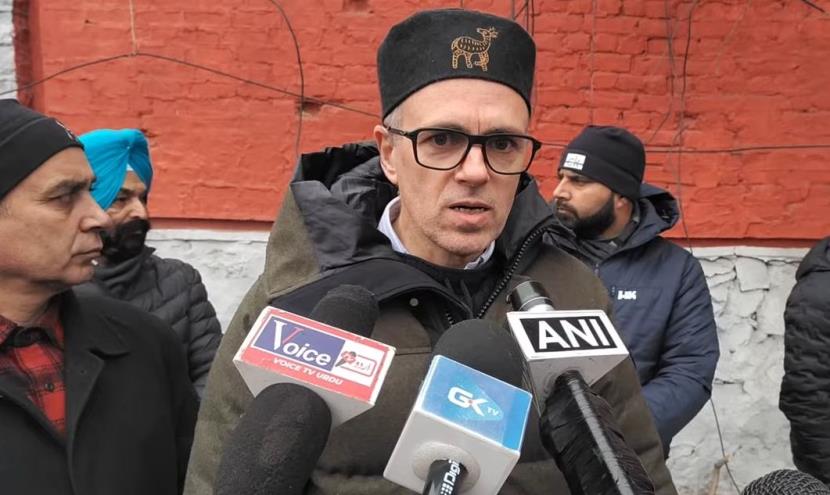‘Normalcy Forced, Not Organic’ in Kashmir, Says Omar Abdullah
Srinagar 28 Feb 2025: Chief Minister Omar Abdullah has recently described the current situation in the Union Territory of Jammu and Kashmir as “not normal,” asserting that “normalcy has been forced in Kashmir, it’s not organic.” His remarks have sparked a significant political debate, highlighting the ongoing challenges and complexities in the region.
Addressing the Current Situation: During a private event in New Delhi, Abdullah pointed to specific incidents that underscore the abnormality of the situation in Kashmir. One such incident was the authorities’ refusal to allow the funeral of Hurriyat leader Mirwaiz Umar Farooq’s father-in-law at Srinagar’s Jamia Masjid. Abdullah questioned, “If everything is normal, why was the funeral not allowed today?” This restriction on religious rites serves as a clear indicator of the ongoing challenges in the region.
Security Concerns and Upgradation: Abdullah also drew attention to the upgradation of Mirwaiz Umar Farooq’s security, which is now being provided by CRPF commandos rather than the J&K Police. He remarked, “There is a threat to Mirwaiz as militants’ ability to strike has gone up. Has the situation worsened so badly that we need CRPF now to protect Mirwaiz? Our government earlier would manage his security with J&K Police only.” This statement highlights the growing security concerns in the Union Territory and raises questions about the effectiveness of the current security measures.
Political Reactions: Abdullah’s remarks have elicited strong reactions from various political leaders and parties. The opposition has criticized his statements, accusing him of endorsing an “iron-fist approach” and taking a U-turn on his election promises. PDP leader Waheed Para argued that the current lack of separatist activity is due to stricter measures against separatists and the bans on the Hurriyat Conference and Jamaat-e-Islami. He stated, “If Kashmir seems calm today, it is because of the implementation of laws such as UAPA and PSA, the activities of the NIA, the seizure of residences and possessions, continuous profiling, lodging of inmates outside under harsher laws, and dismissal of workers under Article 311.”
Opposition’s Criticism: People’s Conference chief Sajad Lone also criticized Abdullah, stating that his body language contradicted his words. Lone remarked, “CM sahib with a stony face trying to facially unsay what he is saying. I am not surprised at the grudgingly tacit endorsement of the abrogation of Article 370. This is just the trailer for those who voted for him. The film is yet to start. Brace yourselves for much more.” Lone’s comments reflect the deep-seated political tensions and the ongoing debate over the abrogation of Article 370.
Statehood and Administrative Setup: Abdullah, who has frequently visited New Delhi since the elections, also rejected the idea of a statehood arrangement where the Home Department would be controlled by the Centre. He emphasized the need for a more autonomous and locally governed administrative setup to address the unique challenges faced by Jammu and Kashmir.
Bottom-Line: Chief Minister Omar Abdullah’s remarks have brought to light the ongoing challenges and complexities in Jammu and Kashmir. His assertion that “normalcy has been forced, not organic” underscores the need for a more nuanced and locally driven approach to governance and security in the region. As political leaders and parties continue to debate the best path forward, the focus remains on ensuring the safety, well-being, and rights of the people of Jammu and Kashmir.



